8. Birth (2004)
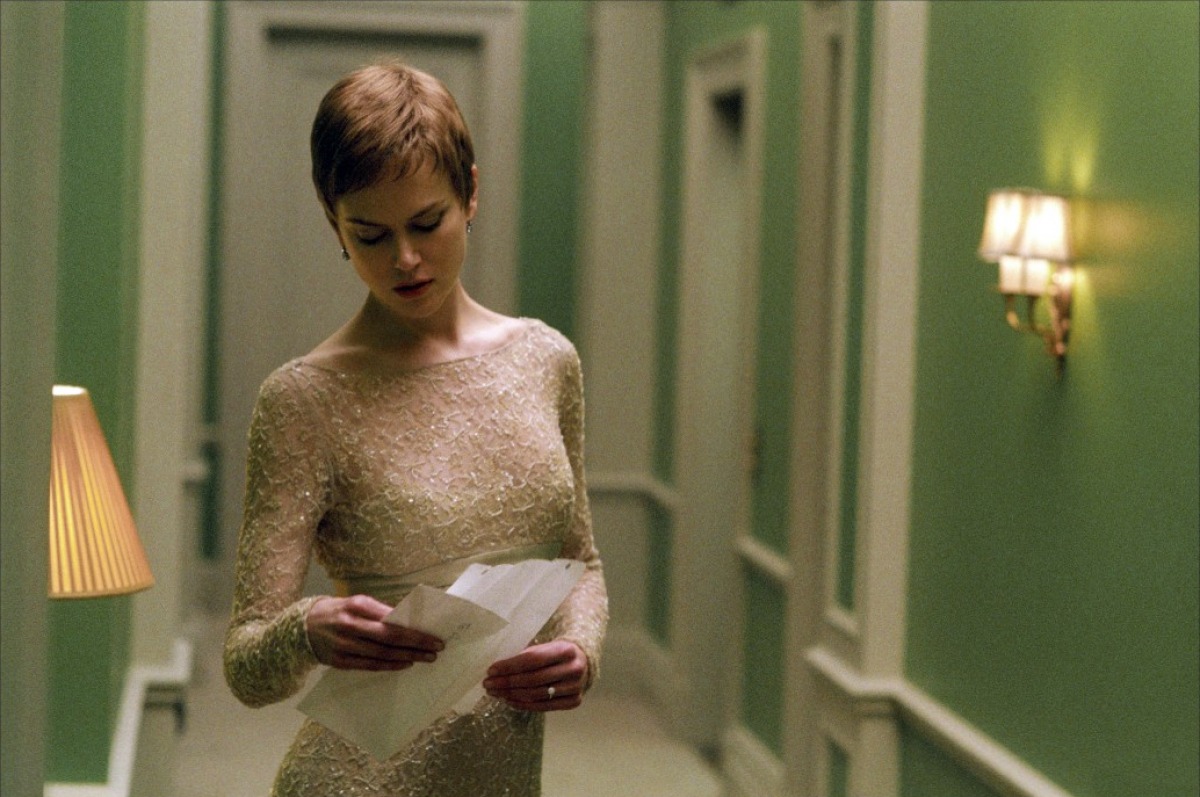
Jonathan Glazer’s criminally misunderstood second feature Birth combines a sedated surrealism with a powerful meditation on belief and its connection to love and the result is a confrontational and compelling pièce de résistance.
Nicole Kidman is Anna, a Manhattan widow who slowly comes to believe the claims of a ten-year-old boy named Sean, who repeatedly tells her that he is the reincarnation of her late husband, also named Sean, who died suddenly ten years hence.
There’s something histrionic about the emotional insecurity that Birth boldly emblazons, and it makes for something of a malefic love letter, a lamentable billet-doux from a gifted director. Way ahead of its time, Birth is, as A.O. Scott writing for The New York Times puts it, “both spellbinding and heartbreaking, a delicate chamber piece with the large, troubled heart of an opera.”
7. Murmur of the Heart (1971)
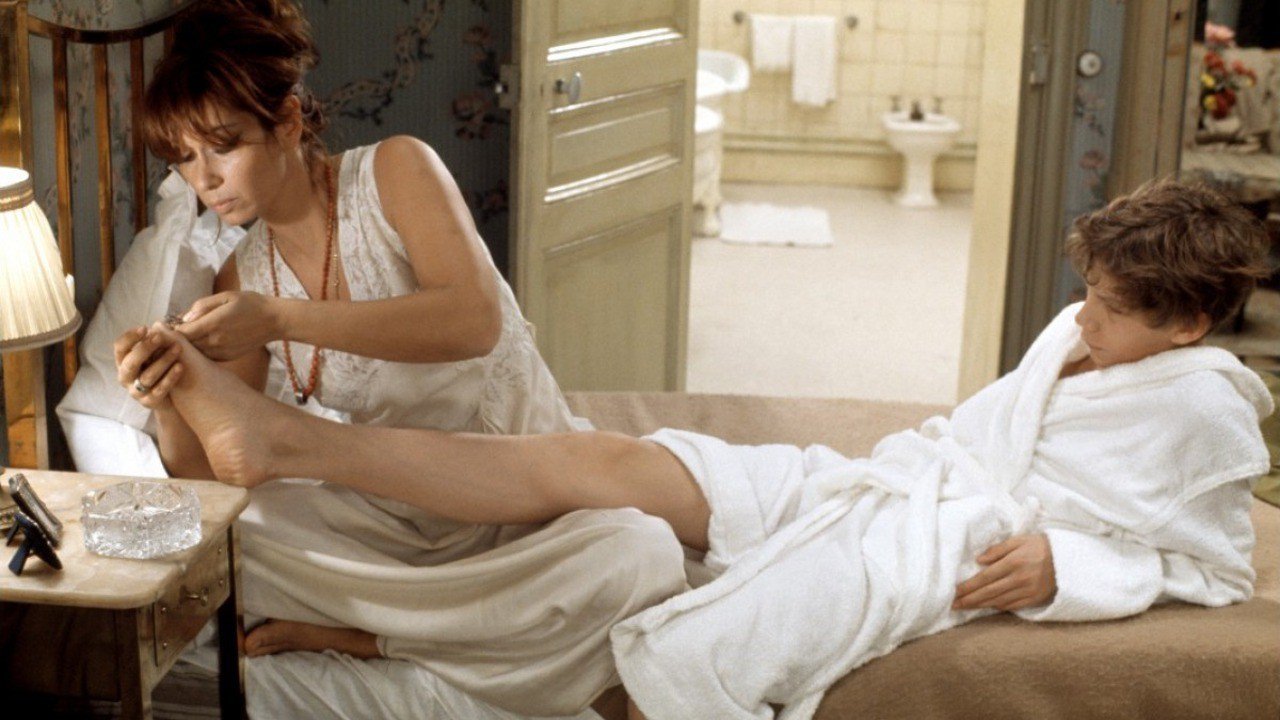
French New Wave luminary Louis Malle’s controversial coming-of-age story embraces accidental incest in the town of Dijon. Despite its racy and sensational subject matter Murmur of the Heart is a shockingly sensitive, remarkably tender, and tellingly melancholic film that ranks with Malle’s finest work.
15-year-old Laurent Chevalier, played brilliantly by Benoît Ferreux, is in many ways an avatar for Malle –– both suffered from heart murmurs and both opposed the First Indochina War, for starters –– and is often compared favorably to François Truffaut’s likewise autobiographical film, The 400 Blows.
An affectionate and nostalgic tale, full of affection and warmth for its characters and it somehow manages to be virtuous even when it is taboo, Murmur of the Heart beats resolutely.
6. Lolita (1962)

Of course Stanley Kubrick’s take on Vladimir Nabokov’s incendiary novel was going to make this list of forbidden love films, how could it not? Middle-aged Humbert Humbert (James Mason) becomes obsessed with teenaged Dolores Haze (Sue Lyon), the titular Lolita –– here she’s a 15-year-old, as opposed to the 12-year-old she was in the novel –– and the results, depending on who you ask, are one of Kubrick’s most satisfying films, at least of his early period.
“How did they make a movie out of Lolita?” queried the print ads back in ‘62 and the answer, one supposes, is with pathos, black humor, and tragic transgression. The satire is sticky, as it should be, and while this film is occasionally confused and uneven, it’s still a minor masterpiece from a major talent.
5. La Belle et la Bête (1946)
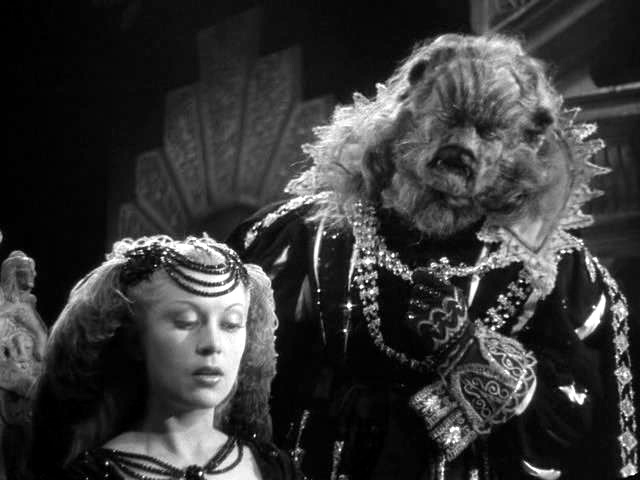
A landmark of fabulist cinematic storytelling from the legendary avant-garde artistic polyglot Jean Cocteau comes the ultimate romantic tragedy, La Belle et la Bête.
A reimagining of the classic fairytale Beauty and the Beast, Cocteau’s version was written by Jeanne-Marie Leprince de Beaumont and focusses on Belle (Josette Day), who’s father (Marcel André) is sentenced to death for plucking a rose from a garden that belongs to Beast (Jean Marais). To spare her father’s life Belle offers herself to the Beast and from their Beast soon falls in love with her.
Astonishing effects, stunning costumes, overpowering visuals, Henri Alekan’s exemplary lensing, dreamy editing techniques, all pulsing and vibrating to its own fevered, weird, and electrical cadence, it’s a frequently nightmarish and ghoulish tear-jerker. And the chemistry between the two leads is beyond question. La Belle et la Bête is one for the ages.
4. Never Let Me Go (2010)

Kazuo Ishiguro’s dystopian sci-fi novel is elegantly adapted into an agonizingly exquisite and hauntingly poetic film of dangerous and unrequited love from director Mark Romanek. Set in an alternate history, a messy love triangle develops at Hailsham, an English boarding school involving orphans Tommy (Andrew Garfield), Ruth (Keira Knightley), and Kathy (Carey Mulligan).
Without giving too much away, a terrible and inescapable fate awaits our protagonists, and their love is more susceptible than any of them know. The twisted, dark, and rancorous world they live in will consume them all, in one way or another, and rarely do tales of lost youth and overwhelmed innocence resonate with such weighty magnitude.
Not only does Romanek do Ishiguro’s book great justice, it gives the audience enough charitable comprehension, sumptuous visuals, and pretty provocations to last a lifetime. Wonderful.
3. Boys Don’t Cry (1999)
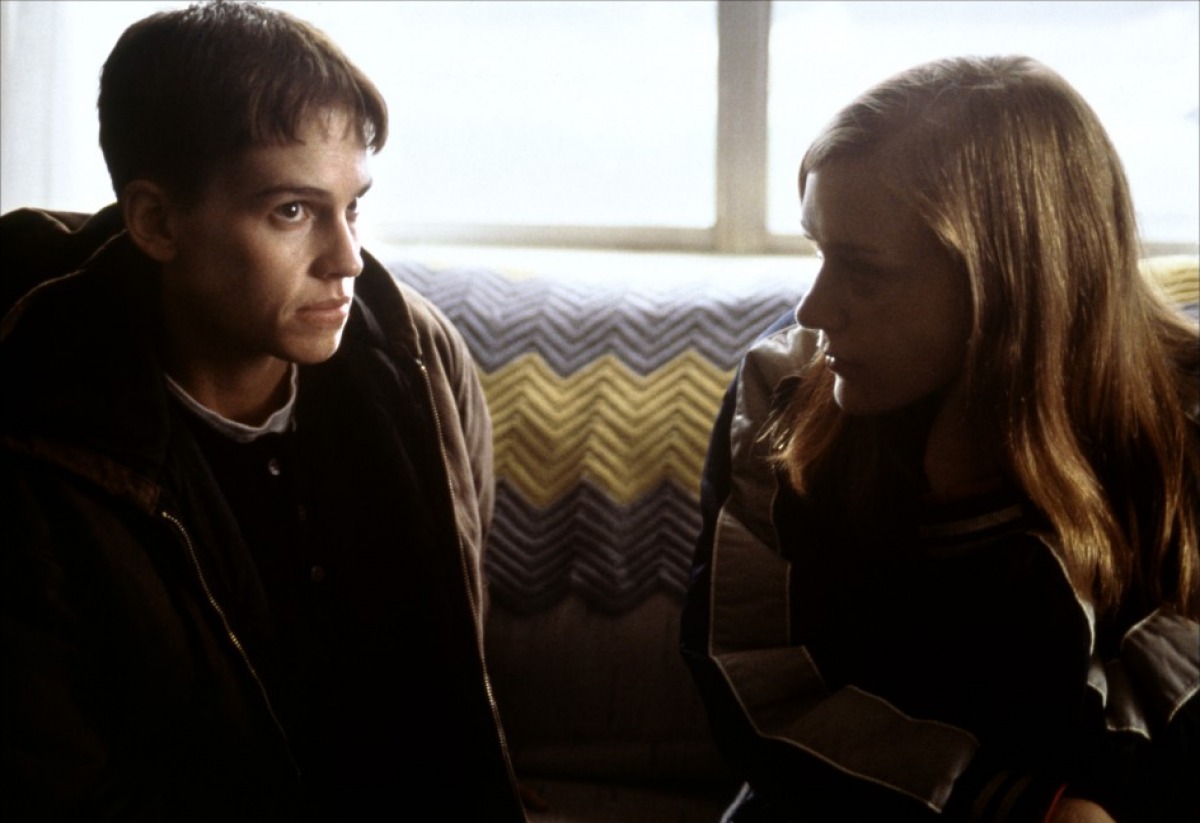
Sexual repression and passionate sympathetic connection lay at the heart of Kimberly Peirce’s award-winning film of real-life trans male Brandon Teena (Hilary Swank, brilliant in an Oscar-winning role).
Brandon’s budding and delicate relationship with Lana Tisdel (Chloë Sevigny) is forbidden in the puritanical Nebraska town where they live, and the abuse, rape, and tragic murder that lays in the shadows of their short-term revelry will break your heart.
While much of Boys Don’t Cry reads as a scathing indictment of American intolerance, as well it should, the stirring emotional heft at its core will stay with you. It is a luminous, tender film, and while it shows horror and tragedy, it also shows great mercy and generous compassion.
2. Harold and Maude (1971)
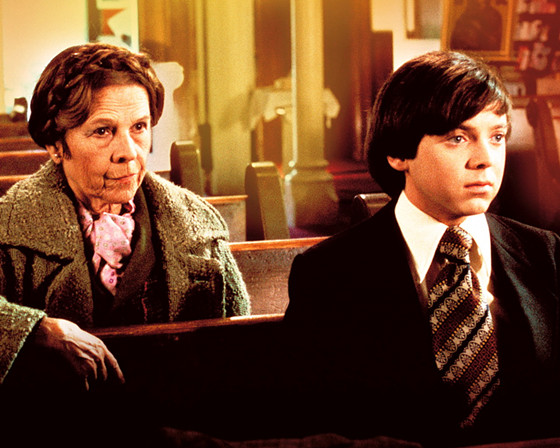
Hal Ashby’s heartfelt Harold and Maude is a taboo smashing work of bravado and pitch-dark humor. Bud Cort’s cherub-like visage as Harold Chasen, a death-obsessed young man in his twenties, is a revelation, but Ruth Gordon’s eccentric 79-year-old Maude Chardin, is the free-spirited tour de force that all but steals the show.
The absurd and offbeat love story that follows is melancholic, profound, and happily risqué all the way. Initially a box-office bomb –– like so many movies that are ahead of their time –– that got mixed reviews from critics and audiences, thankfully has received much reassessment over the years, rightly establishing it as something of an underground phenomenon.
Cat Stevens’ memorable score certainly helped authenticate the cult following that now joyously celebrates it. Ashby’s film, much like Maude herself, has overcome uptight contempt and misunderstanding while aging remarkably well. A prize.
1. Ali: Fear Eats the Soul (1974)
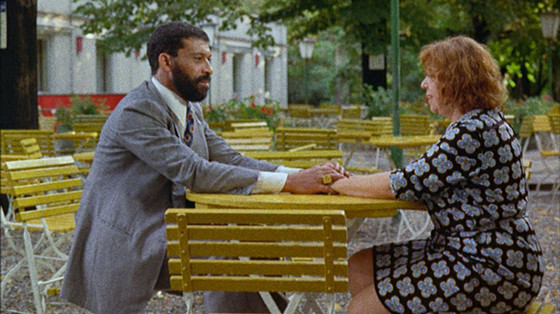
Shot in a scant fifteen days, Rainer Werner Fassbinder’s Ali: Fear Eats the Soul is a timeless classic, and a love story of great unshakeable power. Deceptively simple, spare and yet artful, Fassbinder’s film is technically flawless, and 42 years on, has proven to undoubtedly be a cinematic monument.
As with many films on this list, Ali: Fear Eats the Soul is indebted to and pays homage to Douglas Sirk, particular All That Heaven Allows (1955) and Imitation to Love (1958).
Gaining its rich texture from the minutiae of working-class life the film stars Brigitte Mira as a sixty-something German cleaning lady living in Munich and El Hedi ben Salem as Ali, a Moroccan guest worker twenty some years her junior. Their love affair germinates amidst a climate of hostility, racism, ageism, and societal lassitude, but they stay the course, knowing that their happiness will conquer all.
This is a film that fearlessly takes huge risks, is incredibly courageous, and, when all’s said and done, attempts nothing less than to romanticize life’s rich mystery. It will surprise you in delightful ways and you’ll carry it’s warmth with you forever.
Author Bio: Shane Scott-Travis is a film critic, screenwriter, comic book author/illustrator and cineaste. Currently residing in Vancouver, Canada, Shane can often be found at the cinema, the dog park, or off in a corner someplace, paraphrasing Groucho Marx. Follow Shane on Twitter @ShaneScottravis.